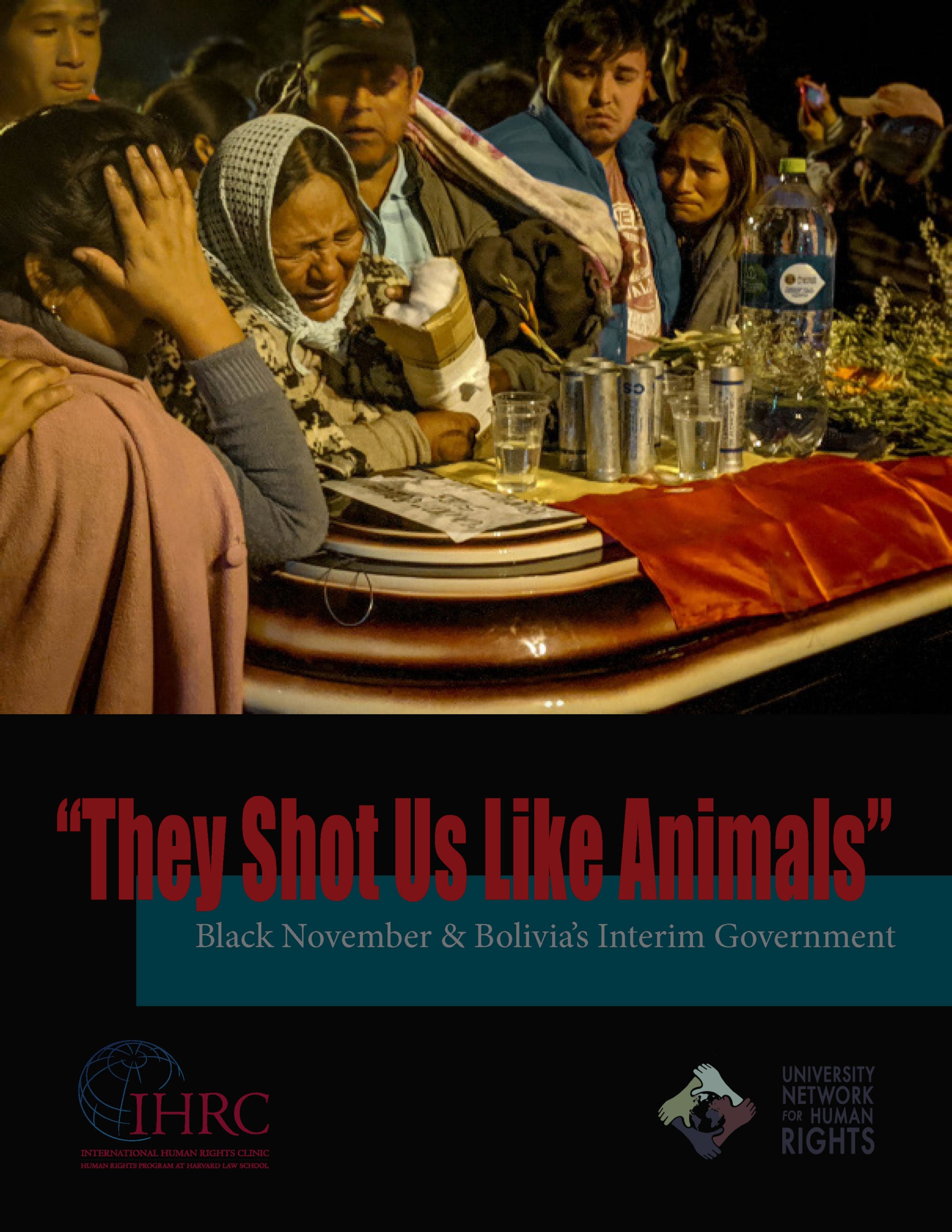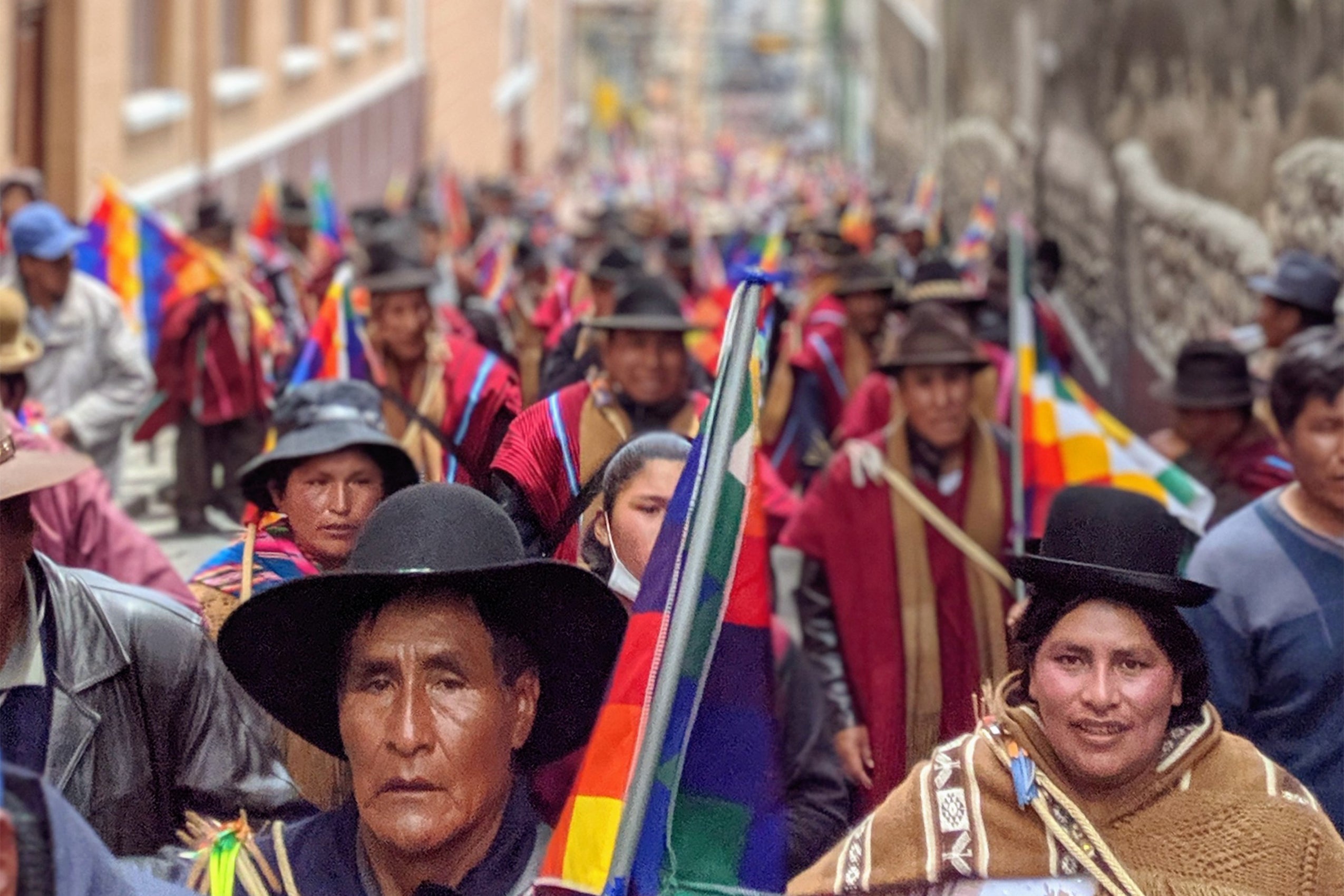Days after the Interim Bolivian Government suspended elections for a second time, Harvard Law School’s International Human Rights Clinic (IHRC) and the University Network for Human Rights (UNHR) released a report Monday documenting widespread human rights abuses carried out under Bolivia’s interim president, Jeanine Áñez. The report, titled “They Shot Us Like Animals: Black November & Bolivia’s Interim Government,” documents one of the deadliest periods in recent Bolivian history, and the growing fear among indigenous peoples and government critics that their lives and safety are in danger.

Áñez assumed power on November 12, 2019 with the mandate of calling new elections by January 2020, but under her administration, Bolivia has endured a surge of human rights violations. Shortly after she took power in November, state forces carried out a series of operations that killed at least 23 Bolivian civilians, all indigenous, and injured over 230.
“We have identified very troubling patterns of human rights violations since the Interim Government took power,” said Thomas Becker ’09, an international human rights attorney with UNHR and 2018–2020 clinical instructor in HLS’s International Human Rights Clinic. “These abuses create a climate where the possibility of free and fair elections is seriously undermined.”
The Harvard and UNHR report offers recommendations to the interim government to enforce its domestic and international obligations. First among these recommendations is that the interim government fulfill its commitment to hold free and fair presidential elections as quickly as possible.
The report was researched and written by Fabiola Alvelais ’20, Laura Clark ’20, Mohammed Elshafie ’20, Rund Khayyat ’21, Delany Sisiruca ’21, Nicolas Walker ’21, Julia Wenck ’20 and Clinical Instructor Thomas Becker ’09, of Harvard Law School’s International Human Rights Clinic, along with Yale Law School Visiting Professor James Cavallaro, executive director of the University Network for Human Rights, and students from Yale Law and Queen’s University Belfast.
For more information, visit the Harvard Law School Human Rights Program website.
